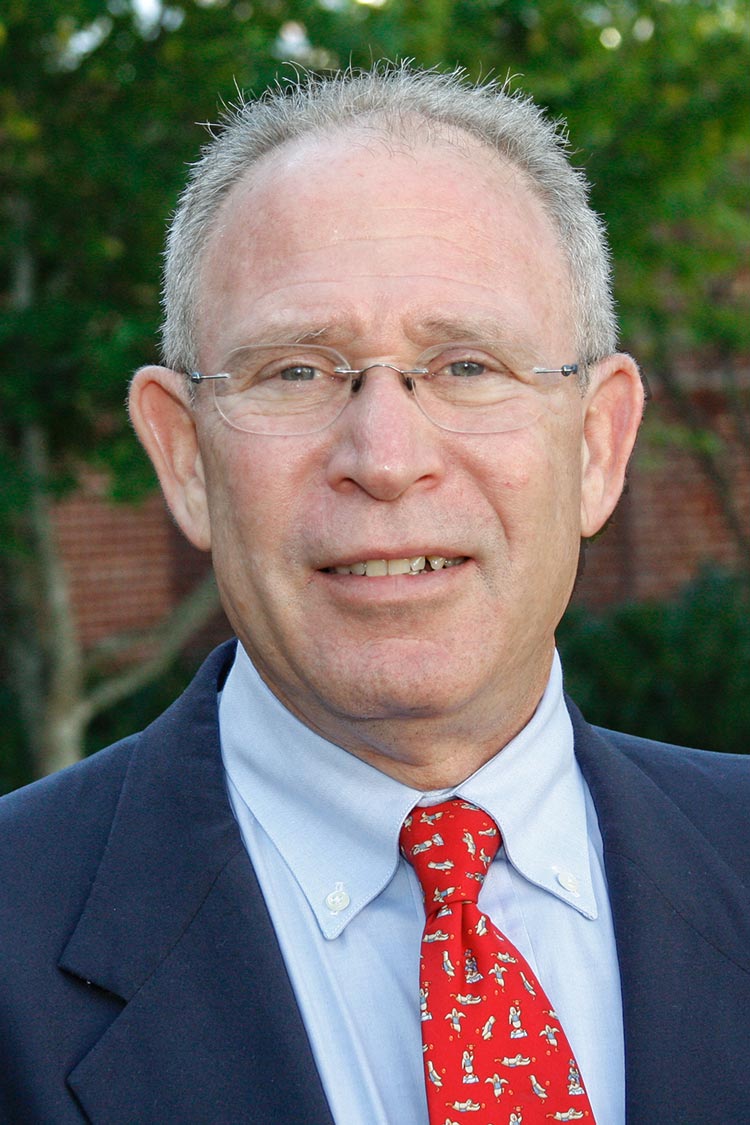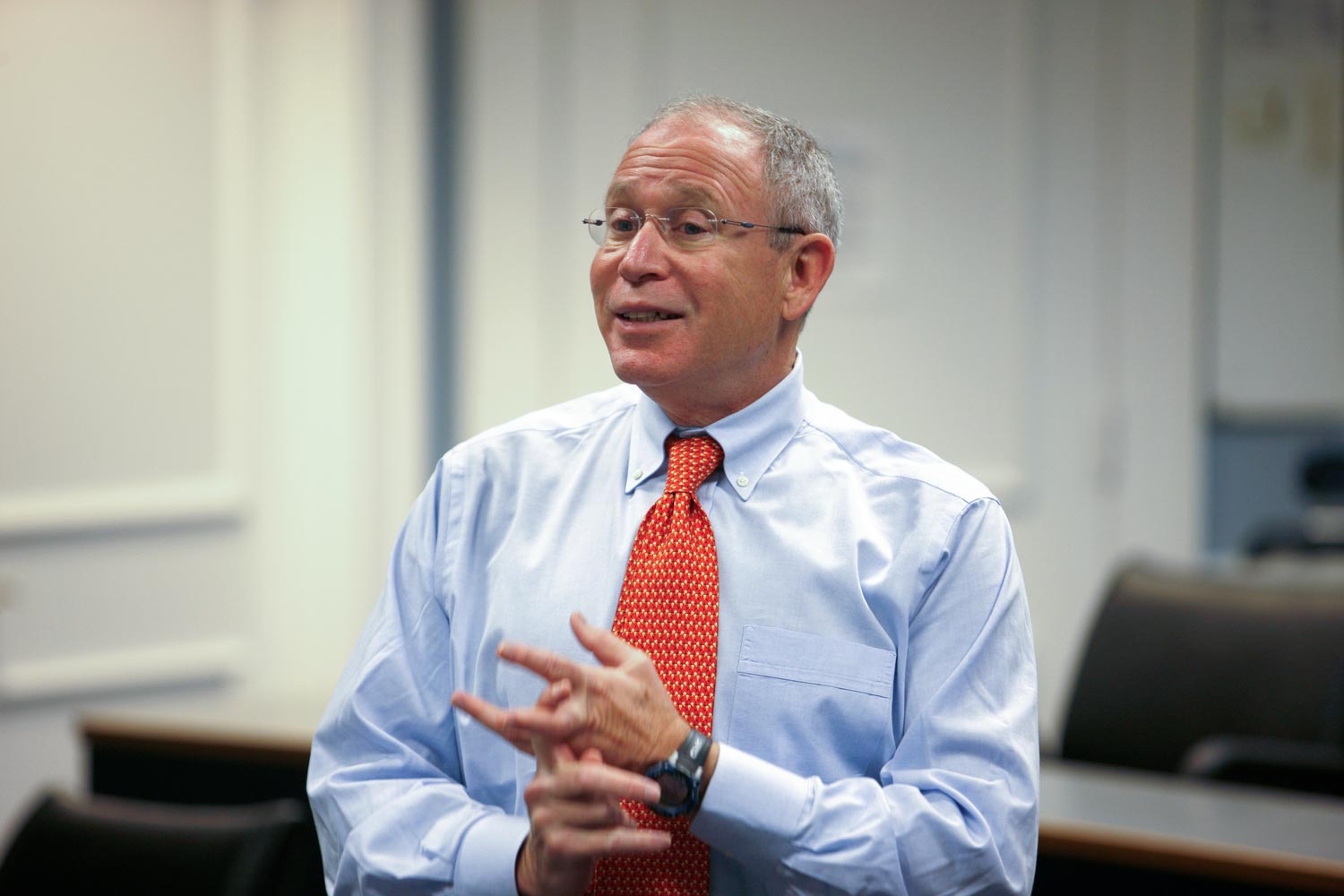Professionally, Robert Spekman was at the top of his game as 1994 drew to a close.
He had earned a dream job on the faculty of the Darden School of Business at the University of Virginia, published several well-received business books and was in high demand as a corporate consultant, known for his expertise in strategic partnerships, marketing and supply chain management.
He was, according to longtime colleague and fellow Darden professor Paul Farris, “one of the favorite professors at Darden.”

Robert Spekman
“Robert was so at home in the classroom, so comfortable with students and had an inexhaustible supply of stories and jokes to illustrate his points,” Farris said. “He had a connection with students that very few faculty are able to achieve.”
Everything seemed to be moving along according to Spekman’s plan – something that was very important to the self-admitted “type-A” professor – until just two days into the new year.
That’s when, on Jan. 2, 1995, doctors in the UVA Health System told Spekman he had Parkinson’s disease.
“It was like being punched in the face – just an awful feeling,” Spekman recalled recently, 23 years later.
Spekman’s diagnosis that day began a battle that spanned his nearly 20-year career at Darden and eventually led to the publication of his latest book – a far cry from the other seven business books to his name.
“My Journey with Parkinson’s Disease,” published this year, is extremely personal, written as Spekman, who retired in 2014, struggled with the physical effects of the disease and reckoned with the emotional fallout.
He started with denial. Just hours after his diagnosis, Spekman packed his bags and flew to Europe for a previously scheduled business trip with a Darden colleague. He told his wife at the time, but no one else. He simply could not allow himself to accept what the doctors had said.
Spekman’s diagnosis would be a closely guarded secret for several more years. Only his wife, his parents and his sister knew, and even his two daughters were partially in the dark. He barely talked about his health, preferring instead to occupy more and more of his time with work, telling himself that it was for his family’s financial security.
“I became very focused on earning money, because I felt I had to ‘make hay while the sun shone,’ so to speak,” he said. “I was emphasizing money, not my family, and I became very detached and emotionally unavailable, which was certainly not good.”
Still, he continued teaching, consulting and traveling at an astonishing pace, striving to ignore or hide the tremors that made his hands shake as he wrote, or the cramped muscles that slowly shrank his handwriting and made it less legible.
However, Parkinson’s disease – a degenerative neurological condition with symptoms including tremors, limb rigidity and gait and balance issues – cannot stay hidden forever. The tremors, which Spekman had first noticed when he rested his hand on a car gear shift or picked up a water bottle on the tennis court, became impossible to hide. And ignoring the disease and focusing so intensely on work simply was not working, for his health or for his family.
“I was miserable,” he said.
He started researching the possibilities of stem cell therapy and deep brain stimulation, a surgical procedure that implants electrodes in the brain to release stimulating impulses, controlled by a pacemaker-like device in the chest.
Spekman decided to have the surgery, and UVA doctors installed the implants in the right side of his brain in 2006, and the left side four years later. He also began experimenting with Eastern medicine, including acupuncture, yoga, massage and meditation.
Now, Spekman is an advocate for those treatments and for focused ultrasound research at UVA, pioneered by Dr. Jeffrey Elias and his team. Their efforts have put the University among the first institutions in the world to use focused ultrasound technology – normally associated with medical imaging – to treat tremors. Research and clinical trials are ongoing, but the technology could eventually be used to treat epilepsy, brain tumors and other neurological disorders.
The combination of treatments that Spekman pursued significantly improved his condition. He was taking 35 pills a day before his first surgery in 2006. Now, he only takes medication when he feels he needs it. He was able to continue some of his favorite hobbies, like hiking, cycling and tennis, for years.
He also started spending more time with his second wife, Susan Snyder, and his daughters, and talking openly with students, Darden faculty members and business leaders about the struggles he faced.
In his last several years at Darden, he gave a short talk in the last class of the semester and often gave a similar version to executives. The theme? “If you think you have it all figured out, think again.”
“My main point was that I had emphasized money over family, and that was detrimental. Now, I have changed my focus,” Spekman said. “We only have one life, and you certainly can work all of the time, but you need to understand that you will never get those lost soccer or lacrosse games back. For me, although I was making a lot of money, I was miserable.”
Farris recalled talking with students and executives impacted by Spekman’s talk.
“They were profoundly affected by it,” he said. “So many of them were inspired by Robert’s courage.”
Writing the book allowed Spekman to share that message with a wider audience. The process, he said, was “cathartic.”
“There were parts that were very hard for me to write,” he said. “But I am very excited about it. It’s like nothing I have ever written before. It’s my life, in this book.”
Once silent, Spekman is now a sort of unofficial spokesperson for anyone facing Parkinson’s disease. He often speaks to newly diagnosed patients, their caregivers or students whose family members are fighting the disease. If he hears of someone who has been diagnosed, he will write them a note, just to see if they want to talk.
“I really admire how Robert has continued to write, and how he works to help others,” Farris said.
Spekman, for his part, hopes that people can learn from his book and from his life experiences, even if they are not facing diseases like Parkinson’s.
“I hope they learn that there is hope in adversity,” he said. “You just have to alter the game.”
Media Contact
Article Information
June 6, 2018
/content/former-professors-battle-parkinsons-disease-leads-inspirational-book

